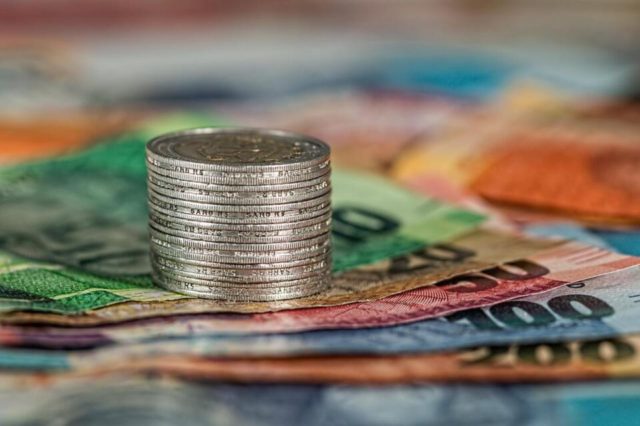Economic experts say it is “ridiculous” that the government is bailing out state-owned enterprises such as SAA but struggling to find funding for vaccines.
AS THE government scuttles to find funds to cover the cost of a Covid-19 vaccine, its proposed plan of increasing taxes to foot the bill has been slated by economists.
Professor Chris Malikane, director of the Macro-Financial Analysis Group at the School of Economics and Business at Wits University, said the tax increase in a recession cannot be justified in both theory and policy.
“No well-trained economist would ever suggest raising taxes in a recession. It is the same as cutting spending in a recession, it is as horrible as it is incompetent. Any student of economics would be horrified by this proposal. Raising tax rates when incomes and unemployment are rising? It is just bad,” said Malikane.
Economic expert at ETM MD, George Glynos, agreed with Malikane, adding that it was ridiculous that the government was bailing out the state-owned enterprises such as SAA but struggling to find funding for the vaccines.
Glynos added that it was insulting that South Africans were forced to pay for service delivery that never materialises to the degree promised; and to also deal with the “blatant disrespect” by politicians of what it takes for the private sector to generate enough productivity to fund the government through taxes.
“The alternatives would be to drastically shrink the size of the government, starting with the public sector wage bill, and to embark on a mass privatisation aimed at paying down SA’s rapidly rising debt. Implement a meritocracy over and above that and you have your solution,” he said.
Lara Hodes, an economist at Investec, said: “The fiscus is highly constrained. We know that increasing personal income taxes, especially during fragile economic times, is not optimal. Additionally, SA cannot continue borrowing unsustainably, as it risks an increasing chance of debt default and bankruptcy. A further reprioritisation of spending from non-critical areas should rather be considered.”
Last week, Treasury director-general, Dondo Mogajane, said the government was considering a tax increase to fund the Covid vaccine roll-out. He said other options were on the table but the tax discussion underscores the limited avenues that can be taken. However, the department refused to answer specific questions sent by Independent Media, saying “detailed financing measures, including any announcements on tax changes, will be announced on Budget day in February”.
The government said it plans to vaccinate 40 million people by the end of this year.
Health Minister Zweli Mkhize had previously estimated that it costs between R12 billion to R20bn to distribute and vaccinate the entire country. Malikane said instead of burdening the financially bankrupt population, South Africa needs to spearhead the call for a global response in which the vaccine is provided on a non-profit basis.
“The costs of the vaccine need to be determined and funded globally. There is a need for a global fund to pay for the vaccine so that countries without the means can also access it. These are discussions that should be taking place. We need proper thinking.”
The Treasury’s plan will face serious resistance, including from trade unions. Cosatu spokesperson Sizwe Pamla said the federation rejects the idea of increasing tax.
“We say no to income tax and the fuel levy increase. They can introduce a wealth tax. They can also introduce capital controls to stop the R80 billion that is taken out of the country illegally and untaxed every year. Workers are being subjected to wage freezes all across the economy and cannot afford any tax hikes,” Pamla said.
Political analyst Metji Makgoba said the current structure of capitalism means that the state cannot address its crises without harming another group of people.
“Some groups of people, usually the super-exploited and the working class, always carry the responsibility of reviving and maintaining the economy and ensuring that services are available to the wider population, especially the elite,” Makgoba.
This week, the DA’s spokesperson on finance, Geordin Hill-Lewis, said his party also opposes the tax hikes, saying this would be a slap in the face of hard-working South Africans.
Workers are opposed to the proposed plan. Boitumelo Matla, from Protea Glen in Johannesburg, said he was still waiting for the government to tell the public what happened to the R500 billion package that was announced by President Cyril Ramaphosa in March 2020, to deal with the economic impact of Covid-19.
“They must tell us what happened to the R500 billion before they can tell us about the tax increase. South Africa must stop this nonsensical method of forcing us to pay even when we can’t afford to,” he said.
Disebo Lekeka, 29, who works for an insurance company, said this would be too much as her salary was commission based.
“This is bad. Already I am not making good money due to Covid-19 and I am struggling to survive. For example, sometimes I make R10,000 and I have to pay my bond, buy food and make sure I have money for transport and emergencies. So imagine what will happen to me if the government increases tax?” she asked.








